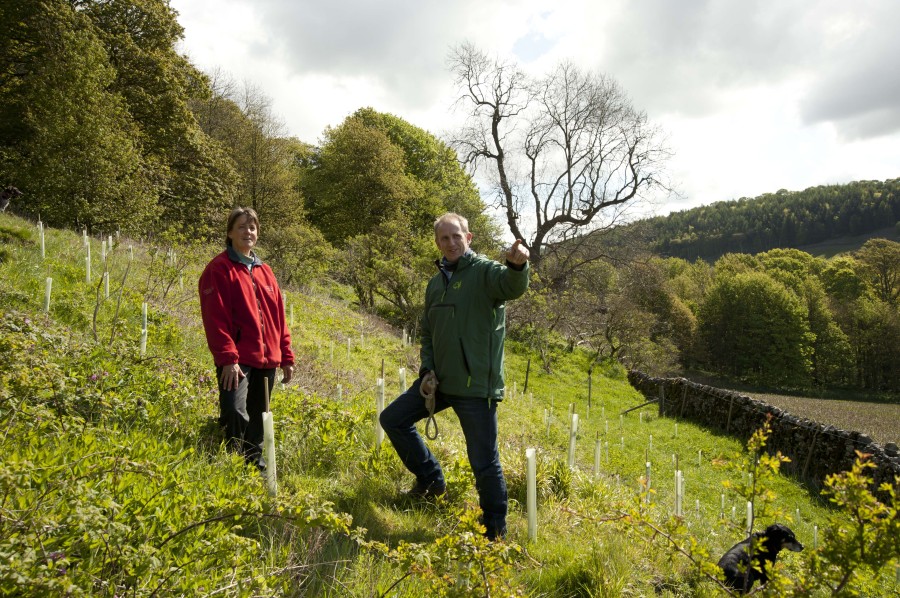Summary
Did the funding achieve its key objective in climate change mitigation?
Summary
Between 2006 and 2010 the Better Woodlands for Wales (BWW) scheme granted around £13 million to support the creation of new woodlands and to secure environmental and community benefits from existing woodland. Forest Research used a mix of quantitative and qualitative methods to evaluate the impact of the scheme.

Key Findings
- Net increase in carbon emissions over the first four years – caused by disturbance of soil carbon and emissions from planting operations
- Net carbon sequestration over 20 years – new woodland will sequester 3,300-31,500 tCO2 (valued using 2012 prices at £64,000 to £1.9 million over the period 2008-2027)
- Biodiversity benefits – valued between £1,000 (low estimate for new coniferous woodland) to £1 million (high estimate for broadleaved woodland)
- Funding was critical – half of grant recipients said the grant scheme was central to their decision to plant
- Scheme design – successfully encouraged short- and medium-term planning of woodland as a holistic enterprise
- Better woodland management – the scheme helped to improve standards of woodland management across Wales
- Diverse recipients and objectives – grants awarded to a wide range of woodland owners (from community groups and voluntary organisations to commercial forestry companies), covering a broad spectrum of woodland management objectives
Funders and partners
This project was commissioned and funded by Forestry Commission Wales.
